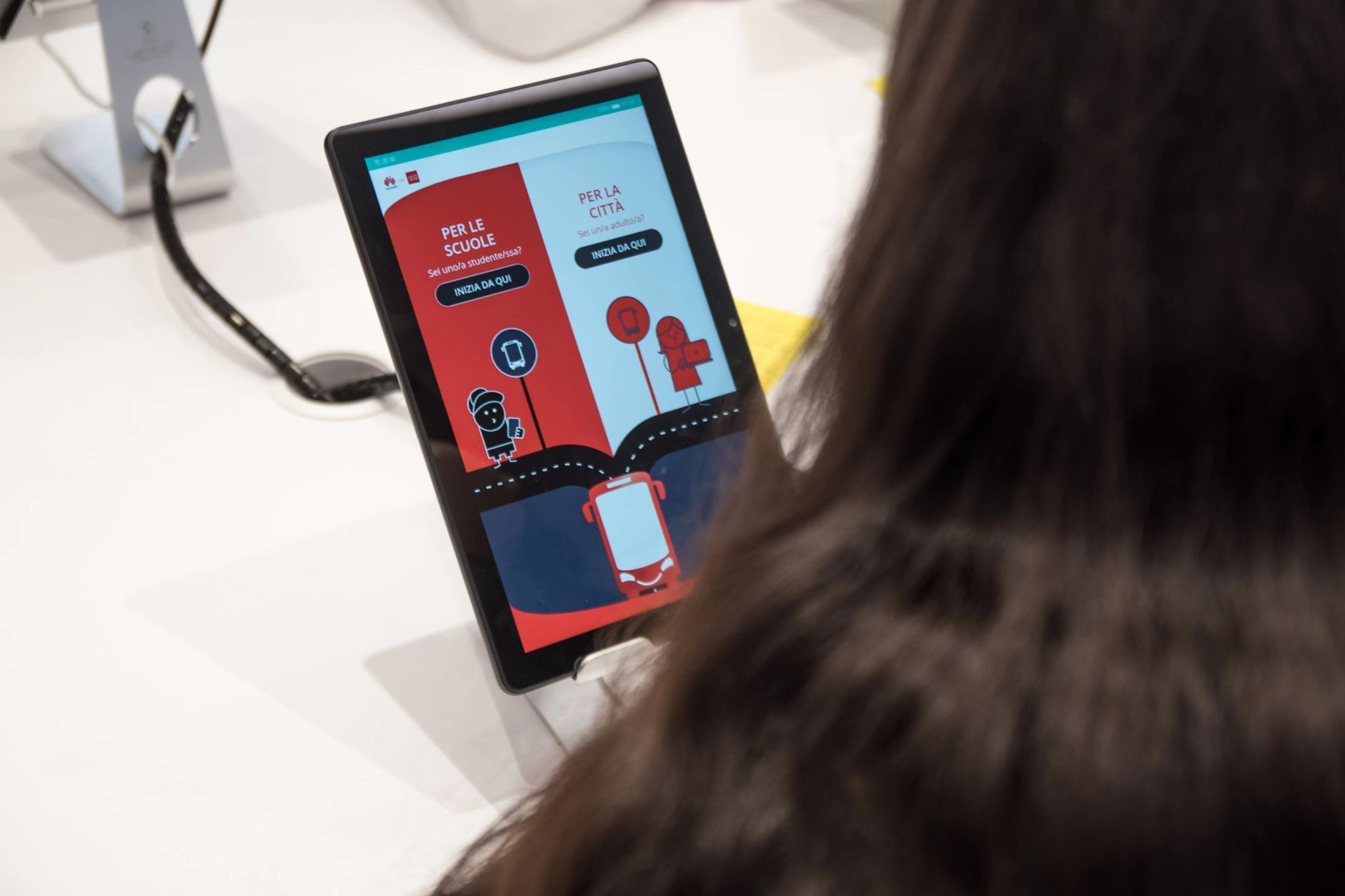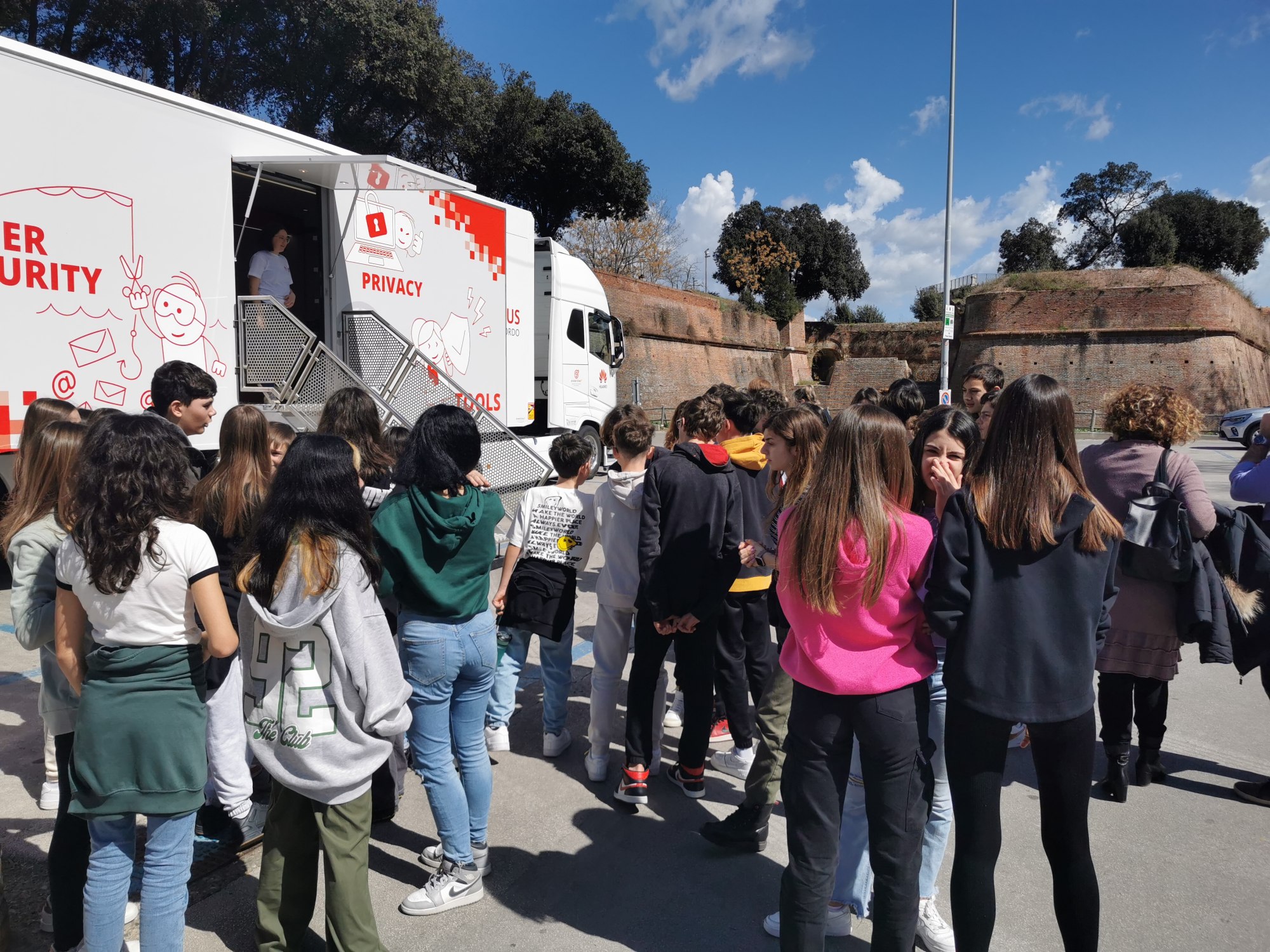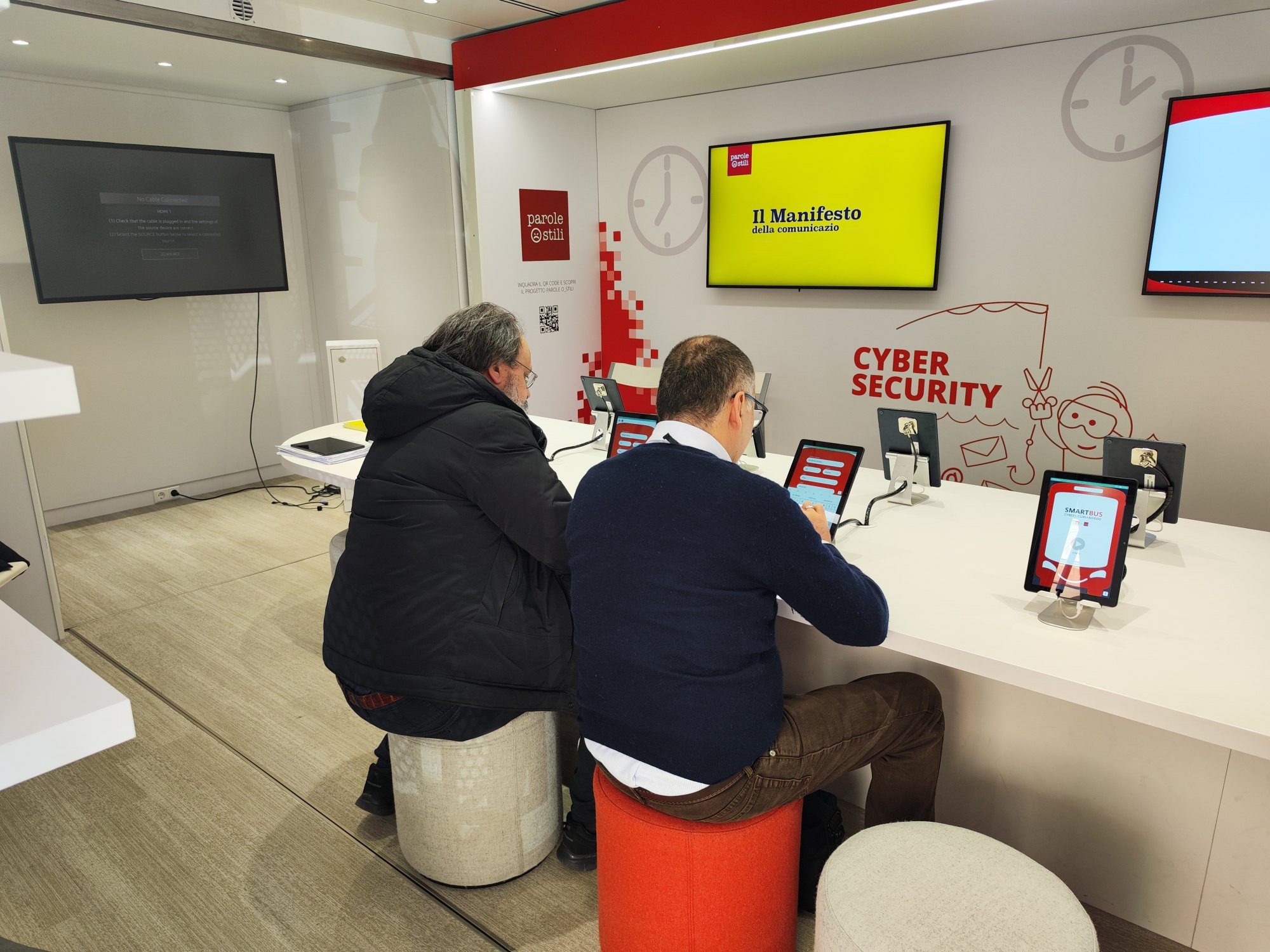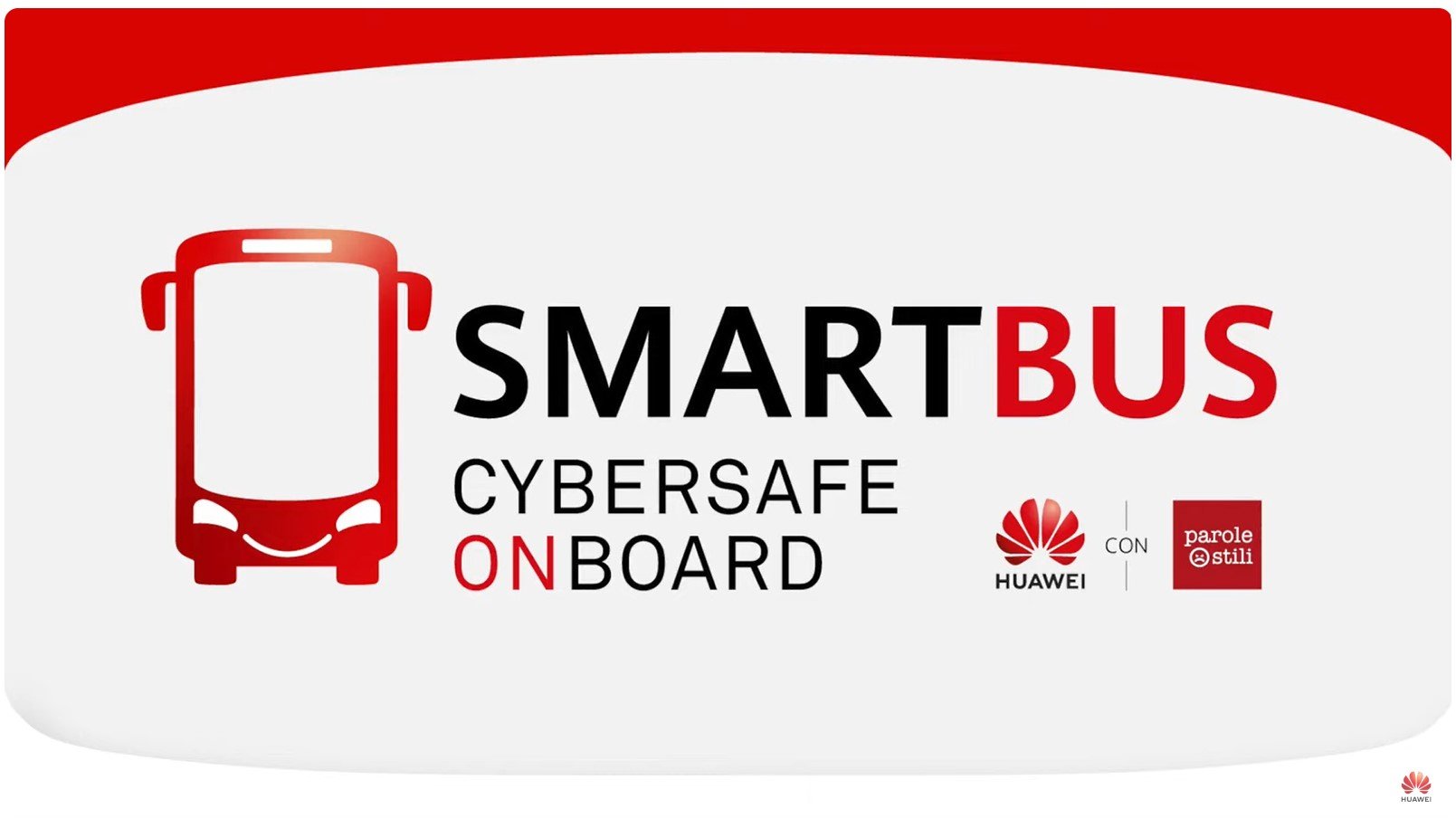
How interactive SmartBus initiative helps teach young people to safely use internet and social media
- Many teenage netizens remain unaware of risks when connected online, such as cyberbullying, privacy breaches, scams, malware attacks, phishing and identity theft
- Huawei Technologies’ touring mobile digital classroom has interacted with 70,000 youngsters across Europe since 2019, including Spain, Portugal, Italy, France and Sweden
Many young people around the world, including millennials, born in the early 1980s and late ’90s, and Generation Z, from the late ’90s to early 2010s, have grown up surrounded by digital technologies and so are familiar and comfortable with using computers and the internet.
These “digital natives”, as they are widely known, have also experienced the rapid surge in the popularisation of social media and the adoption of smartphones since the start of the new millennium. Today, almost every task, whether it involves working, socialising, searching for information, looking for a job, shopping, paying bills – even simply talking to someone – can be done from anywhere in the world with a smart device.
Yet being a digital native does not mean they will be digital savvy – and this easy access to technology that offers seemingly limitless online connectivity poses numerous serious threats to unsuspecting users, including privacy breaches, cyberbullying, scams, malware attacks, phishing and identity theft.

Internet users who are still in their teens are particularly at risk. They will not even remember a time when Wi-fi connections were slow and often unstable. Their personal identities and social lives are inextricably linked with social media, making them much more vulnerable to cyberbullying. Young people may also lack an awareness of the importance of keeping their data and private information secure – and how to safeguard them.
However, governments around the world are aware of this growing problem, with the European Union (EU) at the forefront of efforts to address this urgent issue. Last year, the political and economic bloc of 27 member states passed the Digital Services Act. This legislation lays down rules for online platforms and search engines, particularly those with more than 45 million active users, to ensure that their content is responsible and that the terms and conditions and algorithms are fair and transparent.
These efforts are particularly important for a region such as the EU, where 96 per cent of young people aged from 16 to 29 reported in 2022 that they used the internet every day, while 84 per cent said they used it for social media. The annual Safer Internet Day initiative, established in 2004 by the European Commission, the EU’s politically independent executive arm, reminds the public of the significance of the problem.
Huawei Technologies, a leading global provider of information and communications technology infrastructure and smart devices, which has long understood this global issue, works to tackle it alongside stakeholders such as non-profit organisations and governmental institutions.

In 2019, through its subsidiary, Huawei Europe, the company launched its SmartBus initiative in the Flemish town of Sint-Truiden, Belgium. This mobile education centre is equipped with interactive gadgets and a digital classroom, which provide children, aged 11 to 15, with an environment to teach them about cybersecurity, including how to safely surf the internet, use social media and how to identify and report problems such as cyberbullying. Through the use of real-world examples, they also learn about fake news and the need to fact-check information, rather than believe everything they see, even if the sources seem trustworthy.
SmartBus is part of Tech4All, a continuing Huawei initiative launched in 2019 to align with the United Nations’ Sustainable Development Goals, which aim to transform the world. It also reflects the company’s vision and mission, and its commitment “to innovating technologies and solutions that make the world a more inclusive and sustainable space for all”.
By the end of last year, about 70,000 youngsters in Europe had benefited from the project in countries, such as Spain, Portugal, Italy, France, Belgium, Luxembourg, the Netherlands, Iceland, Finland, Sweden and Norway.
However, the initiative involves more than simply driving the SmartBus around Europe. To make the project a success requires intricate logistical arrangements, detailed planning and a supportive ecosystem.
The Italian leg of the tour, which ended last May, is a case in point. Huawei Europe initially mentioned the SmartBus initiative to Laura Di Raimondo, director general of Asstel, Italy’s telecoms industry association. She introduced the company to Rosy Russo, president and founder of the not-for-profit organisation Parole O_Stili, based in northern Italy, which promotes digital education and communication for the national school system.

Support for the initiative from government departments was also paramount. Huawei Italy was able to obtain the backing of the National State Police, which is responsible for not only solving cybercrimes, but also educating the public about risks on the internet.
The company also received patronage from five regional governments and most of the 15 cities where the SmartBus made scheduled stops en route, including Novara, Turin, Pisa, Bergamo and Naples, in the regions of Piedmont, Lombardy, Tuscany, Lazio and Campania. Fondazione Piemonte Innova, a network of businesses and public bodies, also signed up as a sponsor.
The comprehensive ecosystem not only helped to set up the project’s necessary materials and resources, but it also ensured the SmartBus was able to visit the most suitable locations for the youngsters.
Throughout each day’s visit, 45-minute sessions were organised for the children with digital tools and gamification methodologies applied to real-life online activities. An app, developed by Parole O_Stili specifically for the project, gave participants the opportunity to use provided tablets to test their skills through quizzes and then discuss the results with educators who conducted the sessions.
Over a three-month period, the SmartBus, under the theme of “Cybersafe on Board”, interacted with 4,500 children from 206 schools, as well as 600 adults, across Italy.

The project has been praised by officials and policymakers, including Paola Frassinetti, undersecretary of state at Italy’s Ministry of Education and Merit, mayors in many of the cities that the SmartBus initiative visited, and members of the Senate of the Italian Republic.
“The originality of this project is to have involved a large ecosystem … in motion [around] the territory,” Frassinetti says. “The SmartBus report provides a very useful analysis of knowledge and cybersecurity, highlighting the importance of training,” she says, adding that she hopes to see further collaborations as the project was loved by the nation’s students.”
Russo says: “The data emerging from this experience shows us that the right path involves the co-participation of multiple social actors [including schools, institutions, families, and the voluntary sector] to promote and support the digital growth of the new generations.”
Wilson Wang, CEO of Huawei Italy, says that the SmartBus initiative is all about investing in the future by making the digital world a better place for generations to come.
“Cybersecurity is not just a case of protecting company assets, it also means the constant and progressive training of our youngest citizens,” he says. “They will be the professionals of tomorrow who will help make all citizens more informed, aware, and less vulnerable to the various threats that lurk on the web.”


